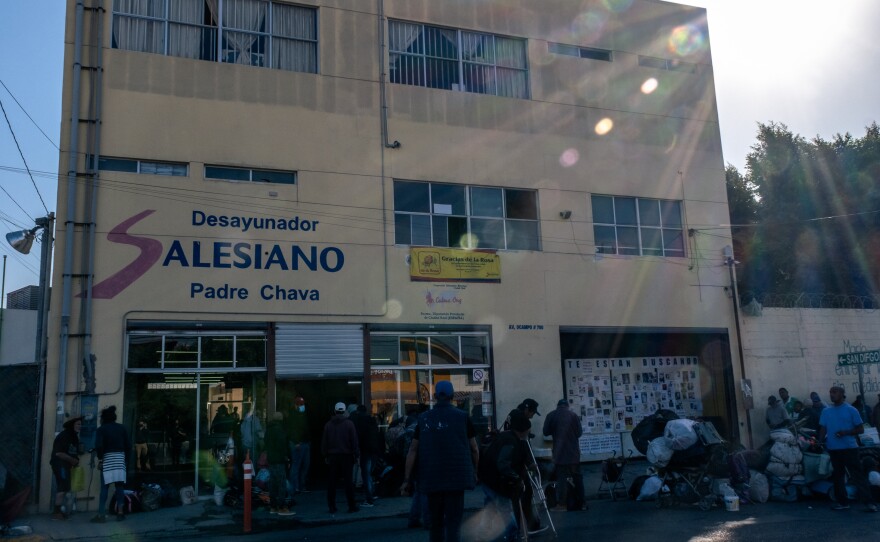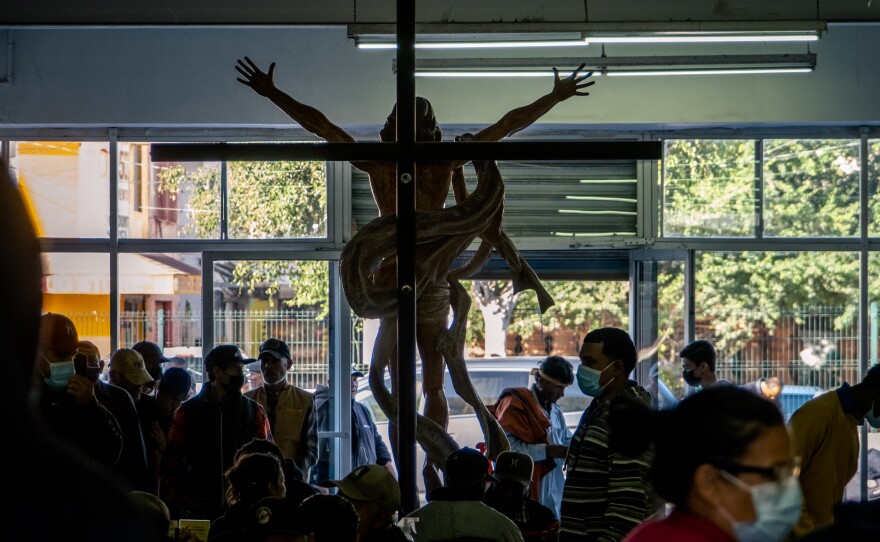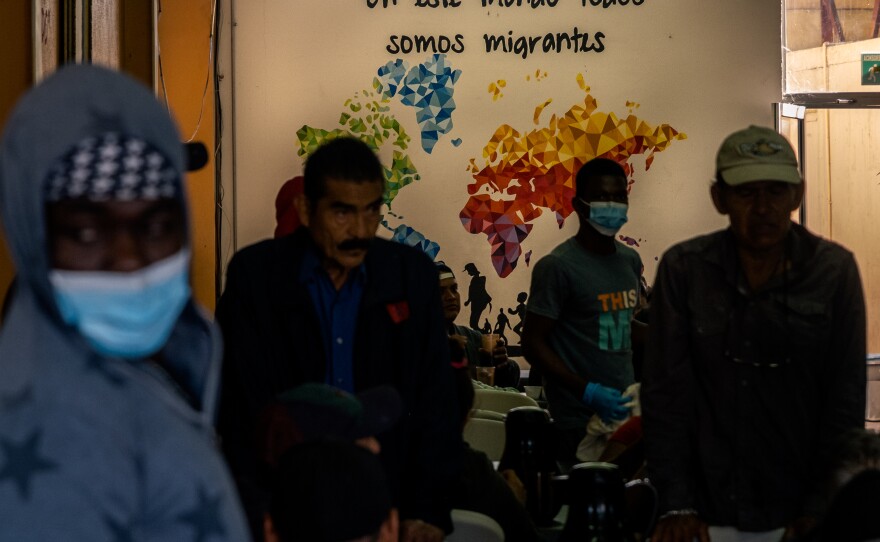On Oct. 12, when the Biden Administration announced new border enforcement policies for Venezuelan nationals, officials said it would not apply to people already in the United States.
“They will not be sent back,” senior administration officials told reporters. “This program is exclusively forward-focused on those who will be arriving after the announcement. So the answer to that is an unequivocal no.”
But that is exactly what several men living in a Tijuana migrant shelter say happened to them.
Juan Carlos Torres, 36, kept a “baggage check” ticket given to him by Customs and Border Protection (CBP) officials. The ticket is dated Oct. 7 — five days before the new policy was announced.
“What they did to us is not fair,” Torres said in Spanish. “But what can we do about it?”

Torres is among tens of thousands of Venezuelans who have fled their homeland in recent years as conditions there have deteriorated under the rule of President Nicolas Maduro and U.S. sanctions.
After he and his girlfriend turned themselves in to officials at the El Paso border crossing on Oct. 7, they were separated and taken to different holding facilities.
Torres spent six days in a temporary CBP holding facility infamously known as the “ice box.” He slept on a thin mattress in a room full of 300 other men.
“There wasn’t enough room to walk,” he said.
Then, on Oct. 13, he was loaded into a bus full of other migrants and flown 800 miles south to Brownsville, TX., where he was deported to Matamoros. His girlfriend was flown to San Diego and deported to Tijuana.
Torres eventually made his way to Tijuana and is now in a migrant shelter near the San Ysidro border crossing. The experience made him believe that border officials intentionally kept Venezuelan nationals in custody until the new policy change.
“They knew about the new law,” he said. “They were just waiting.”

A spokesperson from Department of Homeland Security did not immediately respond to questions about Torres’ claim.
Torres is one of nearly 20 Venezuelan men living in the migrant shelter.
Fredderick Soto, 30, crossed the border near Mexicali with his girlfriend, who is from Peru. She was allowed to stay in the U.S. but he was sent back to Mexico because he’s Venezuelan.
Soto said a family friend is willing to sponsor him in the United States and he’s applying to secure one of 24,000 spots created under Biden’s new enforcement policy.
However, Soto is concerned that he won’t get the application done in time.
He spent $2,500 to travel from South America to Tijuana. Along the way, he said, he hiked through dangerous jungles and was robbed by corrupt police officers in Central America.
He believes that Venezuelan migrants who already left the country should get priority. It doesn’t seem fair to him that Venezuelans who aren’t actively fleeing could take one of the 24,000 spots.
“The new policy allows any person, in any part of the world, to get a visa,” he said. “People in Venezuela could get the visa and I’d end up stuck here.”







